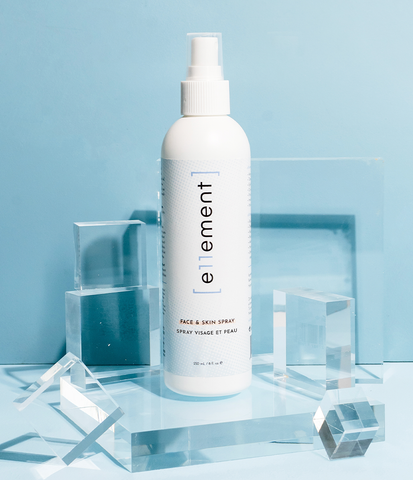Hypochlorous acid (HOCl) has gained attention as a potential solution for various skincare issues, including acne. But what exactly is hypochlorous acid, and how does it contribute to acne prevention? In this article, we will delve into the science behind hypochlorous acid spray and its role in combating acne, focusing on its benefits and mechanisms.

Hypochlorous acid is a weak acid formed when chlorine dissolves in water. It is commonly used in various applications due to its antimicrobial properties. In the context of skincare, hypochlorous acid is known for its ability to kill bacteria, including those responsible for acne.
The Science Behind Hypochlorous Acid in Acne Prevention
Acne is primarily caused by the overproduction of sebum and the presence of acne-causing bacteria, such as Propionibacterium acnes. Hypochlorous acid spray works by targeting these bacteria and reducing inflammation. By neutralizing bacteria and soothing the skin, hypochlorous acid can help prevent the formation of new acne lesions.
Benefits of Hypochlorous Acid Spray for Acne
- Antimicrobial Properties: Hypochlorous acid is effective in killing bacteria and fungi on the skin. This helps reduce the risk of acne caused by bacterial infections.
- Anti-inflammatory Effects: The spray can help calm irritated skin and reduce redness associated with acne, promoting a clearer complexion.
- Safe for Sensitive Skin: Unlike some harsh acne treatments, hypochlorous acid is gentle and less likely to cause irritation or dryness, making it suitable for sensitive skin types.
How to Use Hypochlorous Acid Spray
To maximize the benefits of hypochlorous acid spray, follow these steps:
- Cleanse Your Face: Start with a clean face to ensure that the spray can penetrate your skin effectively.
- Apply the Spray: Hold the spray at a distance of about 6-8 inches from your face. Mist the solution evenly across your skin.
- Let It Dry: Allow the spray to air dry. Avoid rinsing it off to let it continue working on your skin.
Comparing Hypochlorous Acid Spray to Other Acne Treatments
When considering hypochlorous acid spray as part of your acne treatment regimen, it’s helpful to compare it with other common treatments:
- Benzoyl Peroxide: Benzoyl peroxide is a popular acne treatment known for its strong antibacterial properties. However, it can be drying and irritating to the skin, whereas hypochlorous acid is generally gentler.
- Salicylic Acid: Salicylic acid helps exfoliate the skin and unclog pores. While effective, it can sometimes cause dryness. Hypochlorous acid spray complements salicylic acid by reducing inflammation and bacterial load.
Potential Side Effects
Hypochlorous acid spray is generally safe, but some individuals may experience mild irritation or dryness. Conduct a patch test before full application to ensure compatibility with your skin.
Real User Experiences
Many users have reported positive outcomes with hypochlorous acid spray, noting improvements in acne control and overall skin clarity. However, individual results may vary, and it’s essential to incorporate the spray into a comprehensive skincare routine for optimal results.
Conclusion
Hypochlorous acid spray offers a promising approach to acne prevention with its antimicrobial and anti-inflammatory properties. While it may not replace traditional acne treatments, it can be a valuable addition to your skincare arsenal. In the next part of this guide, we will explore more about integrating hypochlorous acid spray into your daily routine and its long-term benefits.























